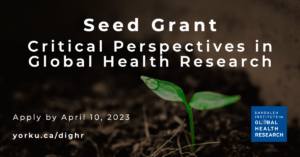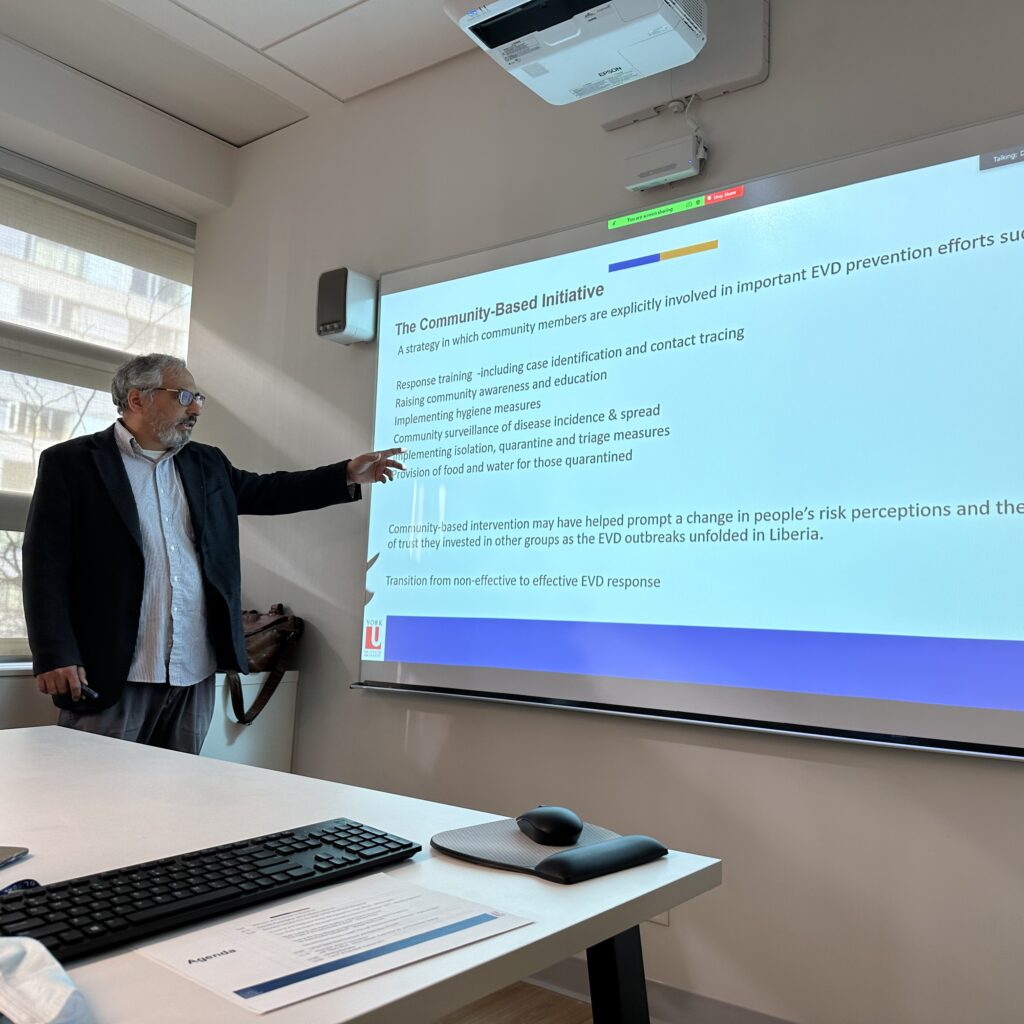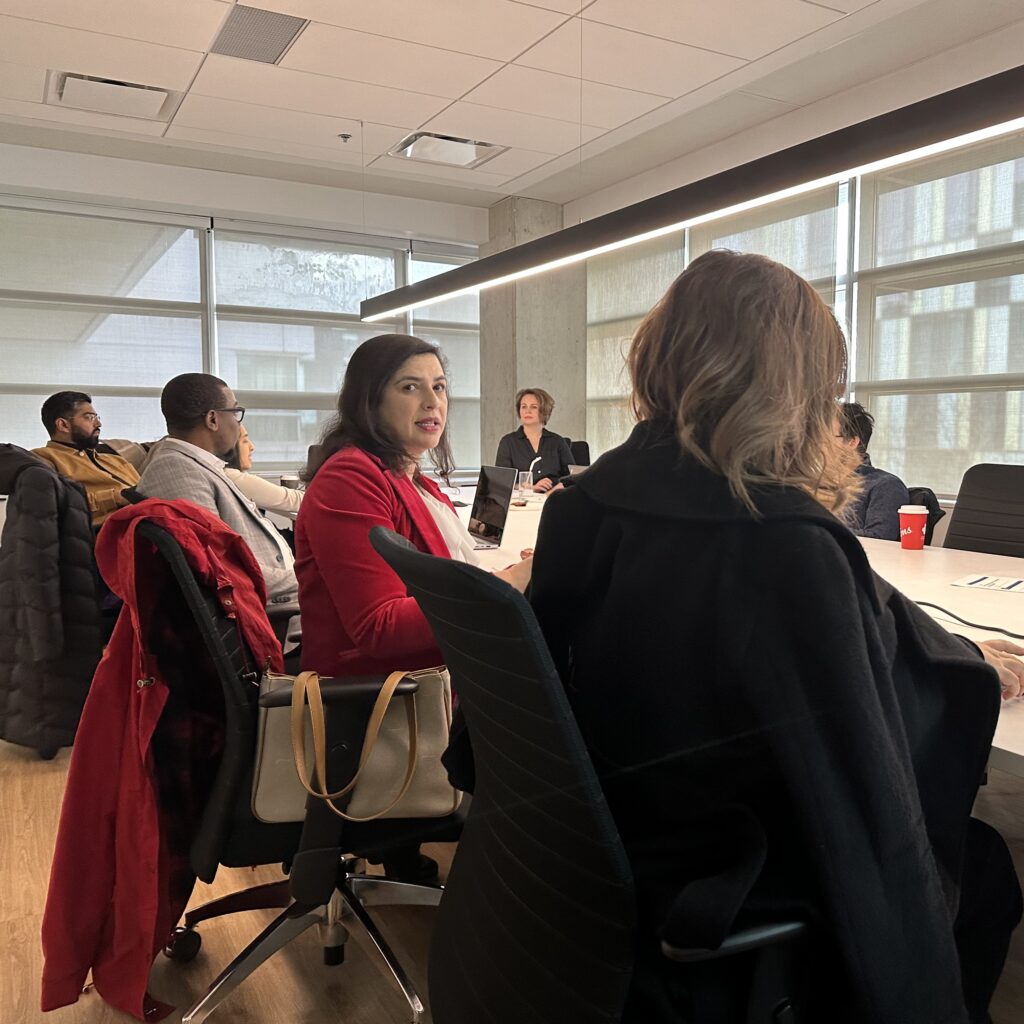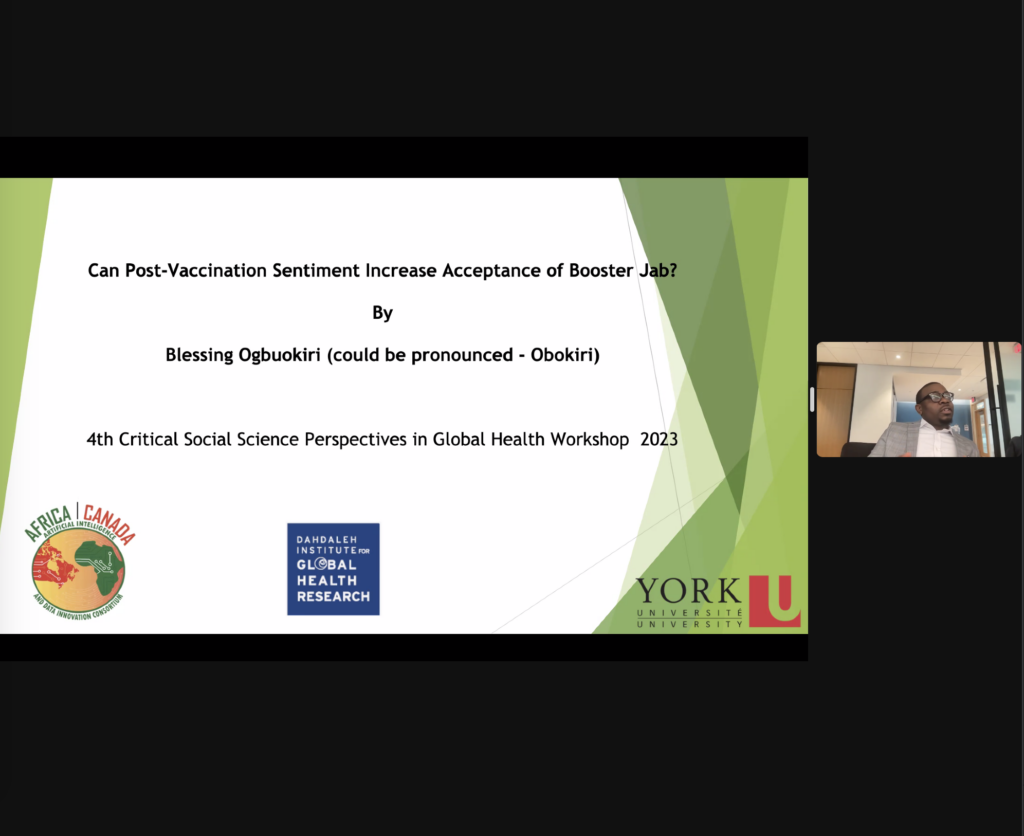Post
Published on April 10, 2023

The Dahdaleh Institute held its fourth annual Critical Social Science Perspectives in Global Health Research Workshop (CPGH) as a hybrid event on Wednesday, March 29, 2023. This year, over 30 researchers participated to discuss the progress of new and recent research in the field of global health especially transdisciplinary research that takes on a critical social science perspective.
Professor Harris Ali presented the keynote address and offered four key lessons from his experience in the global health field. The first being the importance of community-based response, as it allows for locals to participate in initiatives from trustworthy sources. The partnership provides a mutual understanding of local relationship and dynamics. Next, he pointed out that researchers should consider the post-colonial history that created distrust in the first place. In his third reflection, he recommended that researchers should work in close collaboration with community leaders to close the research gaps between local knowledge. Lastly, Prof. Ali emphasized that it is important to approach disease outbreaks with great empathy and recognize all the human experiences that come with the circumstances.
Following Prof. Ali’s presentation, the 2022 CPGH seed grant recipients presented their research that spanned a wide range of themes including healthcare access, health inequality, and planetary health.
Jeffrey Squire (1:10:20) looked at medical waste management practices in Accra, Ghana since the start of the COVID-19 pandemic and the absence of landfill facilities or guidelines. Following, Blessing Ogbuokiri (1:29:28) assessed the role of social media and how the negative sentiments or misinformation contributes to vaccine hesitancy. Simone Bohn’s (1:49:51) research analyzed healthcare inequity in post-slavery societies, with a specific focus on Quilombolas populations that is limited by their public health system. Next, Maggie MacDonald (2:12:30) took a critical social science approach to the literature available on misoprostol and its use in providing reproductive healthcare during humanitarian emergencies. Lastly, Pablo Aránguiz (2:41:35) spoke about the process which Indigenous Williche peoples perform acts of ecological repair and contribute to planetary health, with consideration to the past, time, and space.
Watch the workshop recording below:
This year’s CPGH workshop demonstrated the amazing work York researchers are conducting in various parts of the world and collaborating with local communities. The CPGH Program continues to support these endeavours with the CPGH Seed Grant Program which is currently accepting applications for five seed grants (worth up to $5,000 CAD each).
Learn more about the Critical Perspectives in Global Health Research Seed Grant here
The application deadline has been extended to Wednesday, April 12, 2023, at 11:59 p.m. ET.
Themes | Global Health & Humanitarianism, Global Health Foresighting, Planetary Health |
Status | Active |
Related Work | |
Updates |
N/A
|
People |
James Orbinski, Director - Active
Maggie MacDonald, Faculty Fellow, Faculty of Liberal Arts & Professional Studies - Active Harris Ali, Faculty Fellow, Faculty of Liberal Arts & Professional Studies - Active |
You may also be interested in...
DI Researchers Contribute to New Report on Scaling Humanitarian Innovations
ELRHA will be launching the third paper in its series on scaling up humanitarian innovations at an online event on November 23, 2022. The new learning paper, “How to Scale: Tactics to Enable the Adoption ...Read more about this Post
Recap – Evaluating Health and Environmental Impact of Eco-Friendly Fuel Made From Water Hyacinth
On February 21, 2024, Dr. Reginald Quansah, senior lecturer at the University of Ghana and an environmental epidemiologist, presented his research on using invasive aquatic weeds, particularly water hyacinth, to produce biomass briquettes. This innovative ...Read more about this Post
York Researchers Receive Federal Funding for Knowledge Mobilization Projects
Originally published by YFile (26 October 2023) By Corey Allen, senior manager, research communications Four York University researchers are among the latest recipients of Connection Grants from the Social Sciences & Humanities Research Council of Canada (SSHRC). ...Read more about this Post



